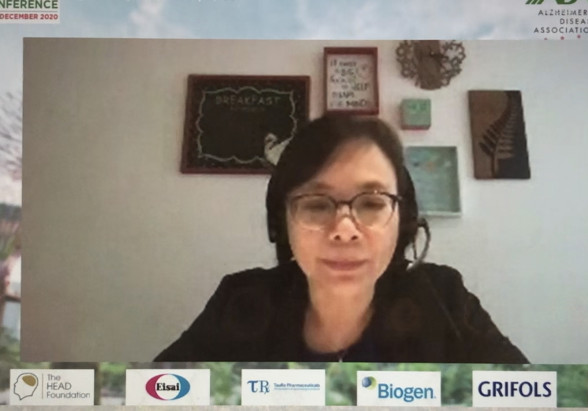Dementia and Employment: Give us a chance to remain employed
 By Emily Tan Tan Ong, DAI Member living in Singapore
By Emily Tan Tan Ong, DAI Member living in Singapore
Living with neurodegenerative disorders like dementia does not mean individuals suddenly lost their functional capacity and work skills upon diagnosis.
Unless it is Rapid Progressive Dementia, many of us continue to live well for a very long time as long as we do our part to stay physically fit, mentally active, socially engaged, and eat well.
However, there is one aspect of positive living that we need support and understanding from society. "Forced" retirement is the hardest blow to us with young-onset dementia. Many diagnosed with YOD have to quit because of their cognitive decline in particularly executive function skills.
There will be certain aspects of the functional capacities, which are no longer able to function at an optimal level. Skills like planning, time management, being organized, multitasking are commonly affected by cognitive deterioration. While it does impacts an individual's productivity, efficiency, and effectiveness as a worker, the skills and experiences can compensate for functional declines.
The term "workability" refers to the relationship between an individual's resources and job scope. According to the work ability model by the Finnish Institute of Occupational Health, there are four interrelated tiers: with a base layer consisting of personal health and functional capacities; the next layer is competence and skills; followed by the third layer personal values, attitudes, and motivation; and the topmost layer is work, referring to work scope, work environment, organization, and leadership.
Hence, it would be useful for any workplace to consider and decide the kind of work intervention needed to keep their employees living with mild cognitive impairment (MCI) or young-onset dementia (YOD). Beyond economic benefits, retaining the occupational role is vital to provide a sense of purpose in life and maintaining self-worth.
For this to work, the collaboration between the affected employee and the Human Resource Department is crucial. The employee has to feel safe enough to disclose the level of functional capacity without being discriminated against and judged.
The negative attitudes, which often based on stereotypes and myths, include people with dementia are unteachable and burdensome to have further worsened the employment situation. This perception can influence management decisions and implications for employee retention and retraining for job fit.
With an inclusive work culture and willingness to support affected employees to maintain their workability, this is a feasible practice. It is also a vital public health policy for the government to work on with the increasing cases of young-onset dementia over the years.
Reference:
Keeping people with dementia or mild cognitive impairment in employment: A literature review on its determinants by Fabiola Silvaggi et al., International Journal of Environmental Research and Public Health, 29 January 2020.

